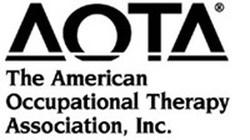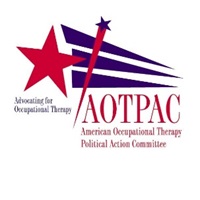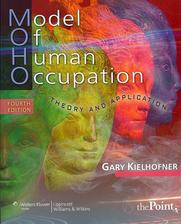Occupational Therapy Related Resources
(Look for more content and resources to be added in the coming days, weeks and months)

The American Occupational Therapy Association (AOTA) is the national professional association representing the interests and concerns of occupational therapy practitioners (occupational therapists and occupational therapy assistants) and occupational therapy students. Learn more about occupational therapy and AOTA at www.aota.org
|
The American Occupational Therapy Foundation (AOTF) is a 501(c)(3) charitable, scientific and educational organization founded in 1965. It serves the public interest by supporting occupational therapy research and increasing public understanding of the important relationship between everyday activities (occupations) and health. It accomplishes its aims primarily through grants and scholarships, through programs, and through publications
|
|
The American Occupational Therapy Political Action Committee (AOTPAC) is a voluntary, nonprofit, nonpartisan, unincorporated committee of members of AOTA. The purpose of AOTPAC is to influence or the selection, nomination, election, or appointment of any individual to any Federal public office, and of any occupational therapist, occupational therapy assistant, or occupational therapy student member of AOTA seeking election to public office at the city, state or federal levels. AOTPAC seeks to promote the legislative aims of AOTA.
|
Updated 1/19/17)
|
The Model of Human Occupation Clearinghouse (University of Illinois at Chicago)
"The Model of Human Occupation (MOHO) explains how occupations are motivated, patterned, and performed within everyday environments (Kielhofner, 2008). It has been argued that MOHO is the most widely-cited and utilized occupation-focused practice model in the world (Haglund, Ekbladh, Thorell, & Hallberg, 2000; Law & McColl, 1989; Lee, 2010; National Board for Certification in Occupational Therapy, 2004). MOHO Web is a confidential online resource for occupational therapy practitioners, educators, students, and researchers. Here you may access and use all of the MOHO assessments and interventions that are supported for distribution through the University of Illinois at Chicago. Assessments for sale have been psychometrically validated using classical test theory and RASCH approaches. References to this research and other evidence for the use of MOHO throughout the world are available in the Scholarship section. Additionally, MOHO Web offers access to translated versions of the MOHO Assessments in 20 languages." (2017, Online at: www.cade.uic.edu/moho/) |



